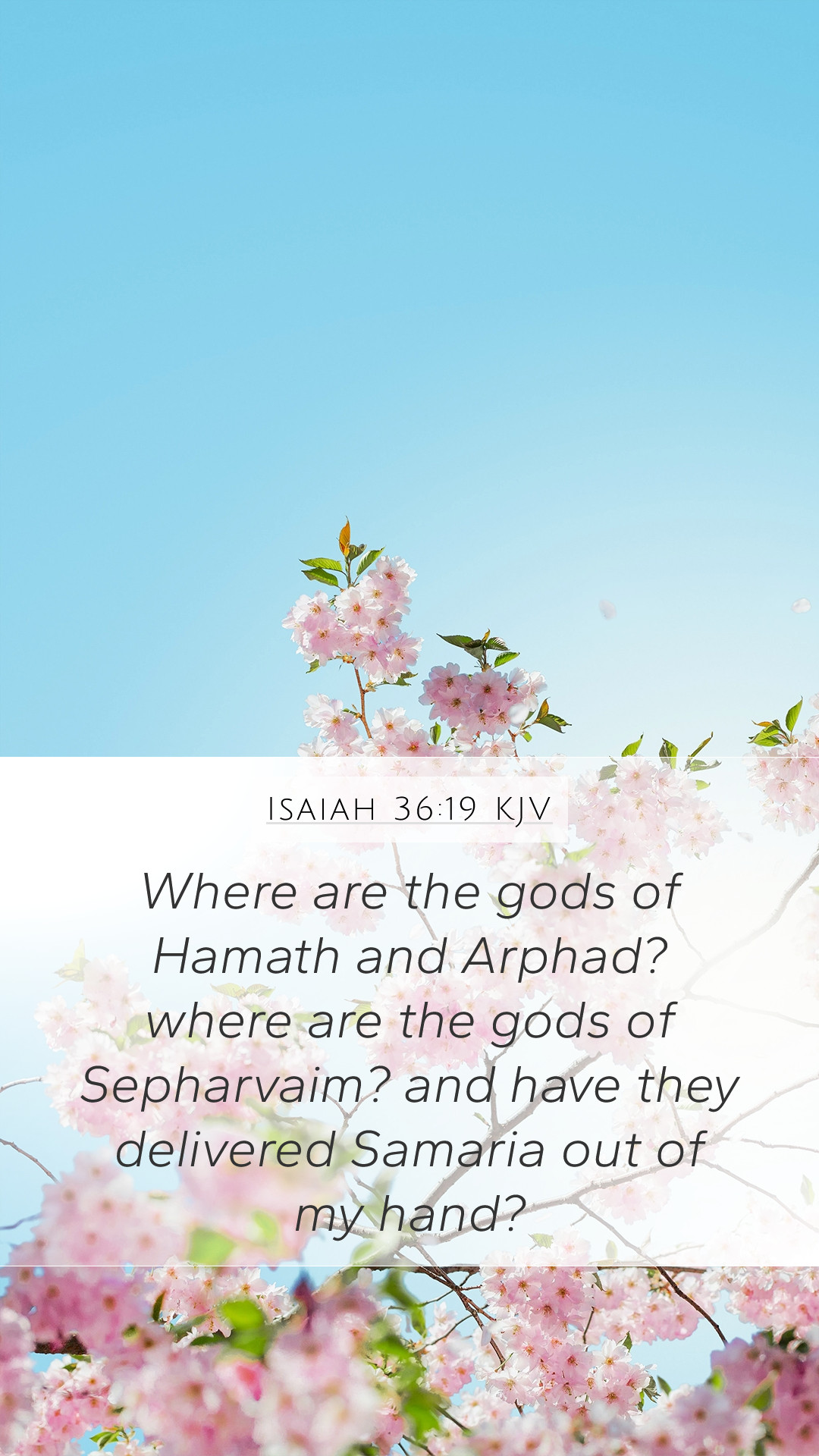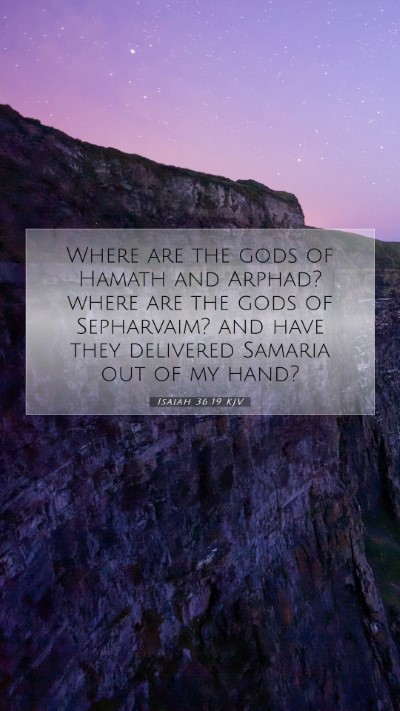Understanding Isaiah 36:19: A Comprehensive Bible Verse Commentary
Isaiah 36:19 states, "Where are the gods of Hamath and Arpad? Where are the gods of Sepharvaim? Have they delivered Samaria out of my hand?" This verse is a profound question that reflects the sentiments of the Assyrian King Sennacherib, who challenges the power of the God of Israel by comparing Him to the gods of neighboring nations. In this commentary, we will explore various interpretations and insights from notable public domain commentaries such as those by Matthew Henry, Albert Barnes, and Adam Clarke.
Context and Historical Background
The events in Isaiah 36 occur during a pivotal moment in Israel's history when Assyria was threatening Jerusalem. The text reveals Sennacherib's attempts to undermine the people's faith in their God by questioning His ability to protect them, leveraging the defeat of other nations' gods as evidence of His impotence.
The Challenge to Divine Power
- Matthew Henry's Commentary: Henry emphasizes the audacity of Sennacherib in comparing the true God to the idols of those nations, highlighting the futility of trusting in false gods.
- Albert Barnes' Commentary: Barnes explains that the reference to the gods of Hamath and others serves to illustrate the King’s blasphemy and arrogance, as he seeks to instill fear among the Israelites by illustrating previous conquests.
- Adam Clarke's Commentary: Clarke points out that the question posed by Sennacherib is rhetorical, designed to provoke doubt in the Israelites' minds regarding God's capability to deliver them from oppression.
Interpretation and Significance of the Verse
This verse encapsulates the larger theme of reliance on God amidst adversity. The Assyrian king’s mockery raises crucial questions about faith, worship, and the nature of divine protection:
- Faith Versus Fear: The context of the verse challenges believers to examine where they place their trust, especially in times of trial.
- The Nature of Idols: Sennacherib’s reference to other gods serves as a reminder of the futility of relying on anything other than the true God for salvation and protection.
Application in Today's Context
In applying Isaiah 36:19 to modern life, one can draw parallels between the challenges of faith today and the historical context of ancient Israel. Believers are often faced with doubts and outside pressures that challenge their faith.
- What are the 'gods' in our lives that we may wrongly place our trust in?
- How can we affirm the power of God in our lives contrary to the circumstances we face?
Cross References
To gain a broader perspective on this verse, consider the following biblical references that echo similar themes:
- 1 Kings 18:21: Elijah challenges the people to choose between Yahweh and Baal.
- Psalm 115:3-8: A passage that delineates the powerlessness of idols compared to the sovereignty of God.
- Jeremiah 10:5: Highlights the inherent folly of worshipping idols that cannot deliver.
Conclusions
Isaiah 36:19 serves as a profound reminder to examine our own faith and the allegiances we form. The commentary combined from various sources provides a rich exploration into the nature of God versus the idols of the world. For those seeking a deeper understanding of Scripture, the insights gained from this verse encourage believers to reaffirm their faith in God who is ultimately powerful and able to deliver.
This exploration of Isaiah 36:19 provides vital Bible study insights that can enhance personal study or group discussions. By analyzing Scripture in light of historical context and applying it to modern life, believers can find strength and encouragement in their faith journeys.


